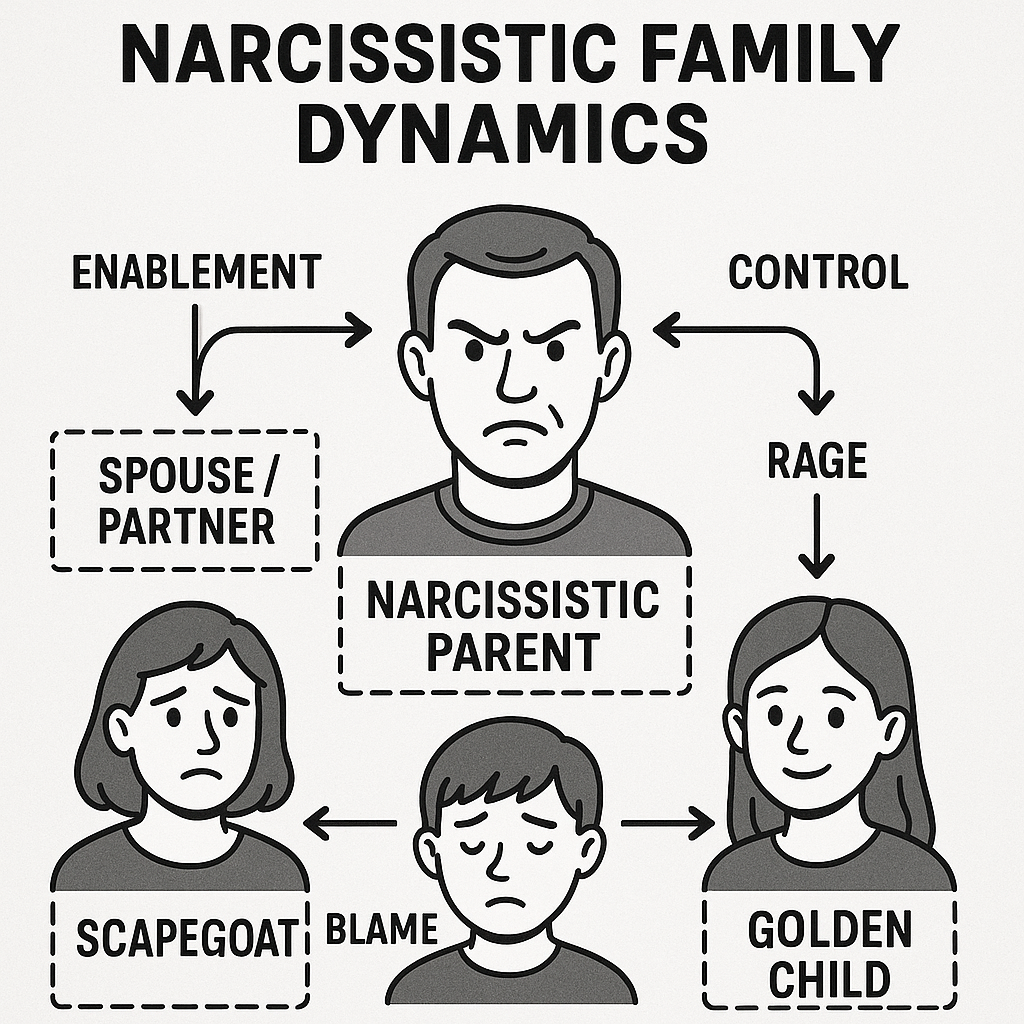A to Z Online
Narcissist Family Dynamics
Narcissist Family Dynamics
Couldn't load pickup availability
Narcissist Family Dynamics refers to the toxic, manipulative, and often abusive interpersonal relationships that form when one or more members of a family exhibit narcissistic traits or full-blown Narcissistic Personality Disorder (NPD). These dynamics create a distorted family structure where love is conditional, roles are rigid, and emotional manipulation is the norm.
Here’s a breakdown of the most common elements in narcissistic family dynamics:
🔹 The Narcissistic Parent
-
Seeks admiration and control.
-
Uses guilt, shame, gaslighting, or rage to maintain dominance.
-
Lacks empathy; sees children as extensions of themselves.
-
Often pits family members against each other to maintain control (divide and conquer strategy).
🔹 Family Roles in Narcissistic Households
-
The Golden Child
-
Idealized and excessively praised.
-
Often pressured to succeed or mirror the narcissist.
-
Their self-worth is tied to how well they serve the narcissist’s image.
-
-
The Scapegoat
-
Blamed for everything that goes wrong.
-
Becomes the emotional punching bag of the family.
-
Often the truth-teller or the most emotionally aware.
-
-
The Invisible Child / Lost Child
-
Ignored, neglected, or emotionally abandoned.
-
Learns to stay out of the way to avoid conflict.
-
Often struggles with identity and connection later in life.
-
-
The Enabler / Flying Monkey
-
Defends or excuses the narcissist’s behavior.
-
May be another parent or a sibling.
-
Helps the narcissist by spreading their narrative or attacking the scapegoat.
-
🔹 Key Patterns in Narcissistic Families
-
Lack of Boundaries: Personal space, emotions, and individuality are disrespected.
-
Triangulation: The narcissist keeps family members in conflict by sharing partial truths or lies.
-
Conditional Love: Affection and attention are based on obedience and usefulness.
-
Gaslighting: Reality is constantly distorted, making victims doubt their perception.
🔹 Long-Term Effects
Children of narcissistic families often experience:
-
CPTSD
-
Anxiety, depression
-
Low self-esteem
-
Codependency or people-pleasing
-
Difficulty trusting others or forming healthy relationships
Share

